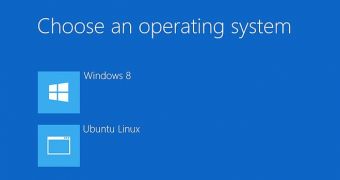It’s no secret that Microsoft has a long-distance fight with open-source software and the 90 percent market share that Windows is still holding in the PC market shows that, at least on desktop, Redmond is winning.
Leaving all the other market sectors aside, more and more cities across the world are embarking on a transition that’s as exciting as it is risky: they are giving up on Microsoft software in favor of open-source alternatives, starting with a Linux-based distribution as the core operating system, and ending with LibreOffice as the productivity suite.
There’s no doubt that Microsoft cannot be pleased with such news, and living proof is the story behind the Linux transition started by the city of Munich many years ago. At that time, people close to negotiations revealed that Steve Ballmer, Microsoft’s CEO when Munich announced plans to embrace open-source software, traveled to Germany in an attempt to convince authorities to stick to Windows.
Satya Nadella won’t do such a thing, I’m pretty sure about it, although news that surfaced this week revealed that more cities were planning to replace Windows with Linux. Russian, French, and Italian authorities have all considered going the open-source way, and as far things seem to develop right now, they’re all very likely to continue their transition from Windows in the coming years.
The reason behind such a dramatic change is pretty much the same in almost every single case: lower costs.
Since it’s freeware, a Linux-distribution doesn’t cost that much to be installed on a computer operated by city authorities, while LibreOffice, which is also available with a freeware license, is obviously a more affordable choice than Microsoft Office is. Of course, LibreOffice is yet to become such a powerful software solution as MS Office, but it’s still a pretty good replacement whenever you don’t afford to buy Redmond’s own application.
It all comes down to how much authorities need to spend in order to deploy the software they choose on their computers, but also to train staff to use it.
In most of the cases, there’s no surprise that switching to Linux and replacing Microsoft Office with open-source alternative is a much less expensive choice.
But this doesn’t necessarily mean that this argument is valid in every single case.
The reason is as simple as it could be: giving up on Windows and Office and installing Linux and LibreOffice could be more expensive due to the training that staff needs, but also because of the support that might be required in case something goes wrong.
These days, pretty much everyone knows how to work on a Windows computer. In fact, Windows has become such a familiar operating system that almost everyone can perform basic tasks such as document editing without any training at all. Installing apps and setting up a printer isn’t difficult at all, and in most cases everything is plug and play and works within seconds.
Linux, and Ubuntu is most likely the best example, has received significant updates in the last few years to improve usability and become much more appropriate for those without experience.
At this point, Ubuntu and other distributions that are even boasting the familiar Windows look promise to help you perform some basic tasks at least as fast as on Windows. And they do manage to accomplish this goal.
The problem however appears when you need to deal with a software issue or any other problem that might occur when working with an application which on Windows would be very familiar.
In most of the cases, additional support is absolutely needed on Linux, and that’s exactly where the open-source Windows rival is losing important points. The community behind the Linux platform is huge and can really help solve the majority of issues you might come across, but imagine that in a government department where productivity is a decisive factor, searching the web for answers isn’t quite the best thing to do.
Whenever a city decides to move from Windows to Linux, the decision comes to two different options: shall we go for the more expensive Windows and Office and expect better productivity, or choose Linux and open-source productivity suite and deal with reduced productivity in the first months?
I’ve heard IT admins saying that switching to Linux is a compromise that must be made because it provides a series of advantages over Windows, such as better security and reliability.
Microsoft however has invested a fortune in improving these two areas, and Windows 9 is expected to excel in this regard. So, the biggest question is: what’s going to happen when Windows has a security and reliability level that’s similar to the one of Linux?

 14 DAY TRIAL //
14 DAY TRIAL //